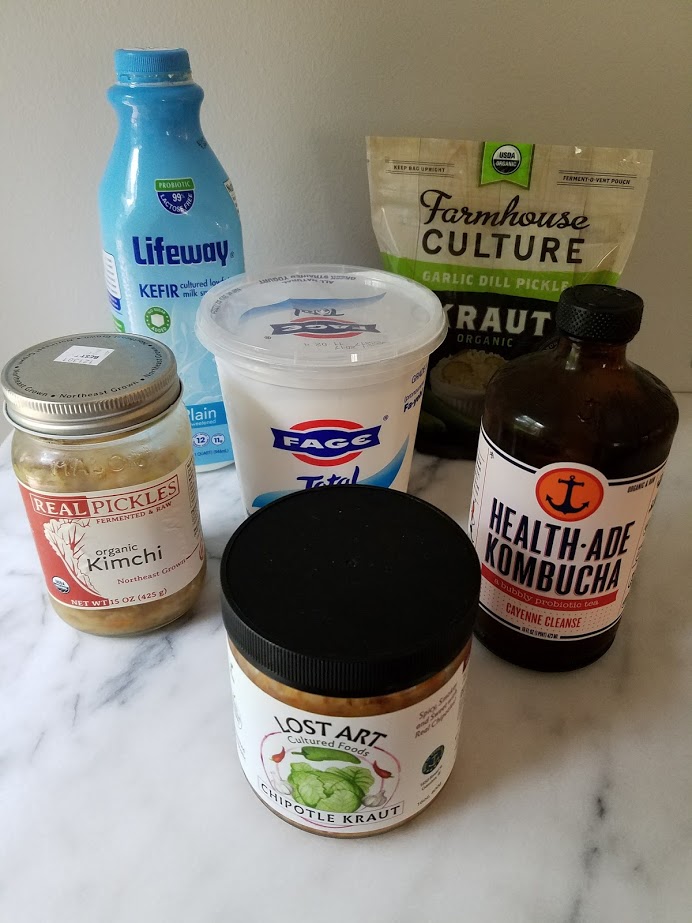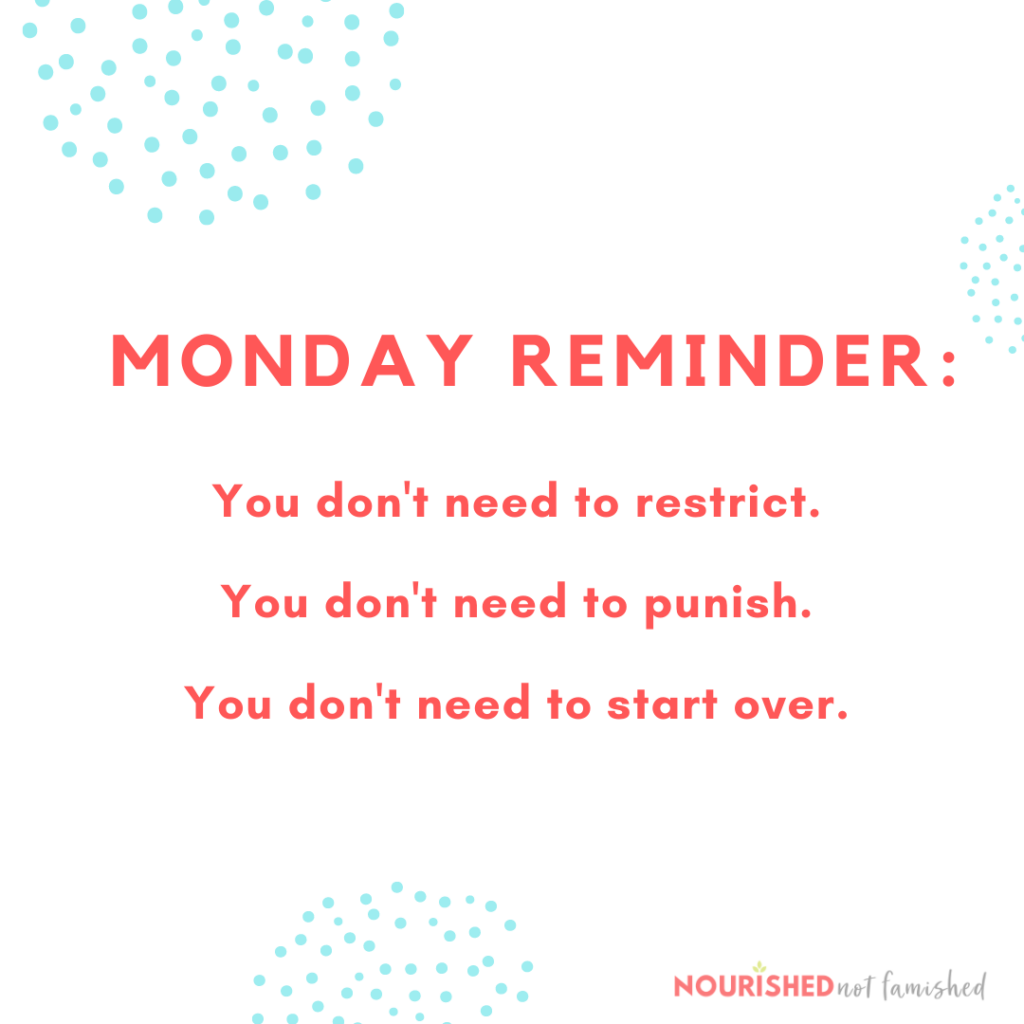
Are you ready to ditch the binge and restrict cycle?
Let’s bust some myths, and drop some truth bombs about what really works to ditch that torturous diet cycle (that doesn’t work anyway!). Instead, live a life of sustainable habits that actually help you thrive.
I get it. I’ve been there. I used to make ALL of the classic mistakes:
- Slash calories super low to lose weight, then wonder why I had such intense cravings
- Worry about how many calories my workout had burned
- Laser focus on diet and exercise, and TOTALLY miss how my terrible sleep habits and poorly mananged stress was sabotaging me every step of the way
And I now know that I was making everything more complicated than it needed to be. I honestly didn’t know just how straightforward the solution could be.
- No, you don’t need to atone for what you think you did “wrong” or “bad” over the weekend regarding food. Depriving and restricting yourself today in the form of undereating or overexercising, or completely restricting entire food groups will just perpetuate the binge and restrict cycle!
- Getting yourself to a place where you feel good, you feel energized, and in your optimal health zone DOESN’T require pain and suffering.
- It doesn’t require a hyper-detailed meal plan or elaborate fitness routine. (Unless you’re an elite performance athlete. In that case you do you!).
This week, challenge yourself to simply do your best to meet your body (and mind’s!) needs, in ways that fit your bandwidth right now.
And it’s not all about food and fitness! (Repeat that to self as needed.)
It’s all about working with your biology instead of against it.
1. Prioritize sleep. For real. #sleepisthenewcaffeine
2. Start your day with a few minutes of natural light before you reach for a screen. Minimize screen use at night (a hard truth, I know ). Right there, you’re book-ending your day in a way that actually supports your biology, helping every cell in your body feel and function its best. This helps you feel more energized, mentally sharper, and makes hitting your health and body composition goals happen more easily! Natural light is a critical signal to our biology, providing the necessary cues to every cell in our body to foster optimal function. Want to know more about this fascinating circadian rhythm stuff? Check out this article.
3. Build your plate with real, whole or minimally refined foods, and include protein, slow-acting carbs (a.k.a. unprocessed or mininally processed), veggies & fruits, and some fat at each meal. But don’t get all rigid about it either. Save the fine tuning for later (or maybe never?). Check out my recipes and meal prep tips for inspiration. Not sure what a slow carb is? Check out this explanation, and why it’s important to priortize slow carbs over fast-acting carbs.
4. At mealtime, let yourself eat the amount your body truly needs to help you make it through to the next meal. If you really need a snack to tide you over before the next meal, no big deal. Just be honest and check in with yourself when you feel like having a snack. Ask yourself whether it’s truly hunger (typically a hollow sort of feeling in your stomach), or if it’s something else you need that isn’t food. Maybe you simply didn’t eat enough food at that last meal, and it truly is hunger you’re experiencing. Or maybe you’re bored, anxious, or stressed and your habit has been to reach for food to ease those feelings. (Hey, that’s completely normal! Welcome to the club.)
If you’ve been out of tune with your hunger and satiety cues for a long time (dieting will do that), be patient. It takes time to “hear” those signals again, reliably. It will probably be messy at first. Persevere, and maintain an overall focus on nourishing your needs in mind, body, and spirit. In doing so, you will help restablish your connection to those cues. And this is how you will finally eliminate your need for external cues like calorie counting to best determine how much you need at a given meal. Accept that this skill is a work in progress, always.
5. Get some movement into your day, in whatever way it will fit. If you can break up long stretches of sedentary time, even better. Create opportunities to maintain your strength and build some muscle mass. It’s life-saving. Literally. Research is showing that muscle mass is the new vital sign! You don’t need to work yourself to the point of utter exhaustion to see benefits (in fact, killin’ it to the extreme day-in and day-out is counterproductive to seeing results).
6. Connect with your people! Do what you can to build in time to connect with the people in your life that lift you up, get you laughing, and have your back. I know, kind of surprising that maintaining strong social connections helps you thrive not only mentally, but physically, too. And you don’t need to be an extrovert with a hundred “close” friends to reap the benefits. Simply having a minimal amount of strong social ties can boost your odds of survival by 50%! Lack of social connection can have the opposite effect on your health, and can be the equivalent of smoking 15 cigarettes a day or being an alcoholic. So, yeah – nuture those connections with the people in your life who nourish you. Everything is connected!
And no pressure to dial into everything right from the start.
Instead, start where you are, use what you have, do what you can. Grow from there.
Like me, you might just discover that it is a lot simpler than you thought to break that binge and restrict cycle. You got this.
You in? Drop a comment . . . what are you doing this week to work with your biology instead of against it?
If you want some support to build your own road map to these sustainable, lifelong healthy habits, hit up my contact form on here. I would be honored to coach you through the process of ditching the diet and learning to thrive in a way that works for you and your life.
Peace,
Jen
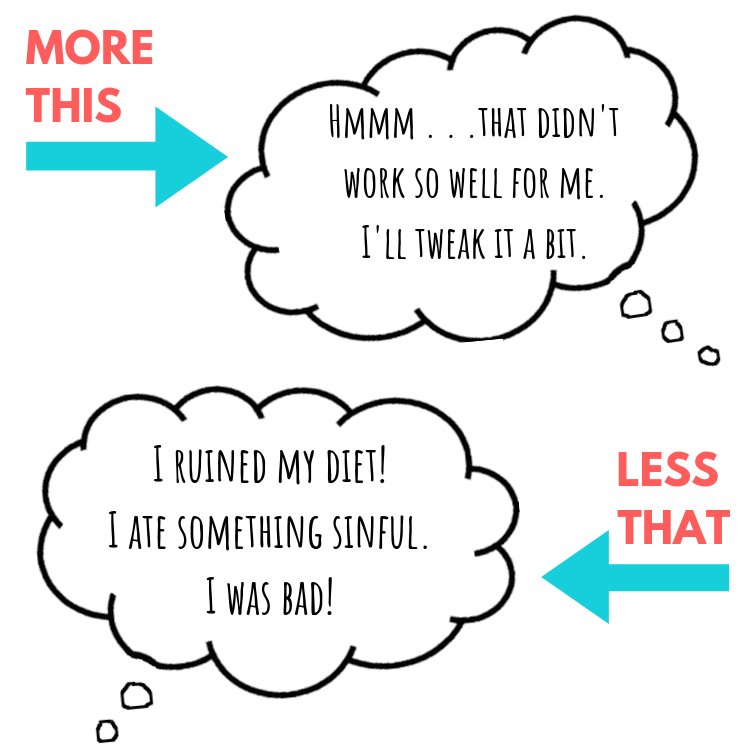
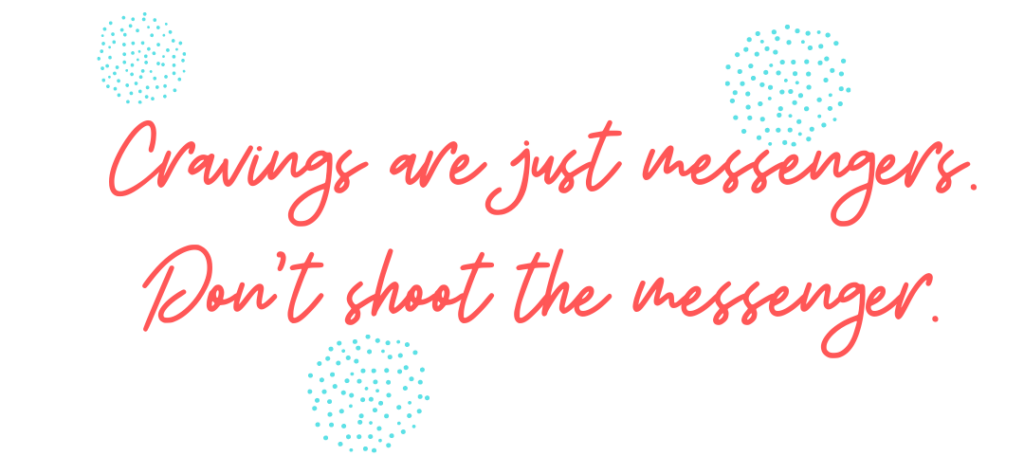
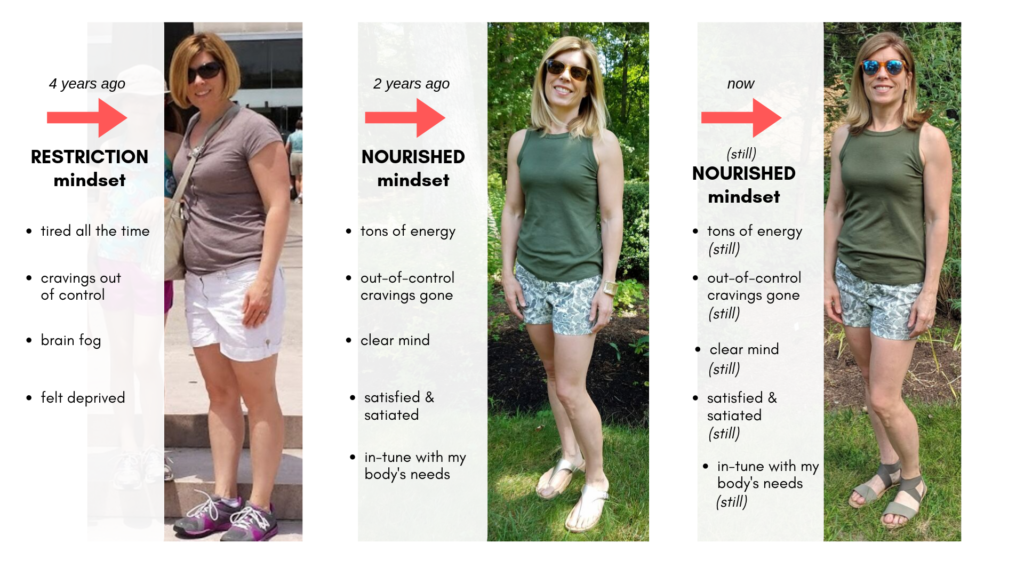
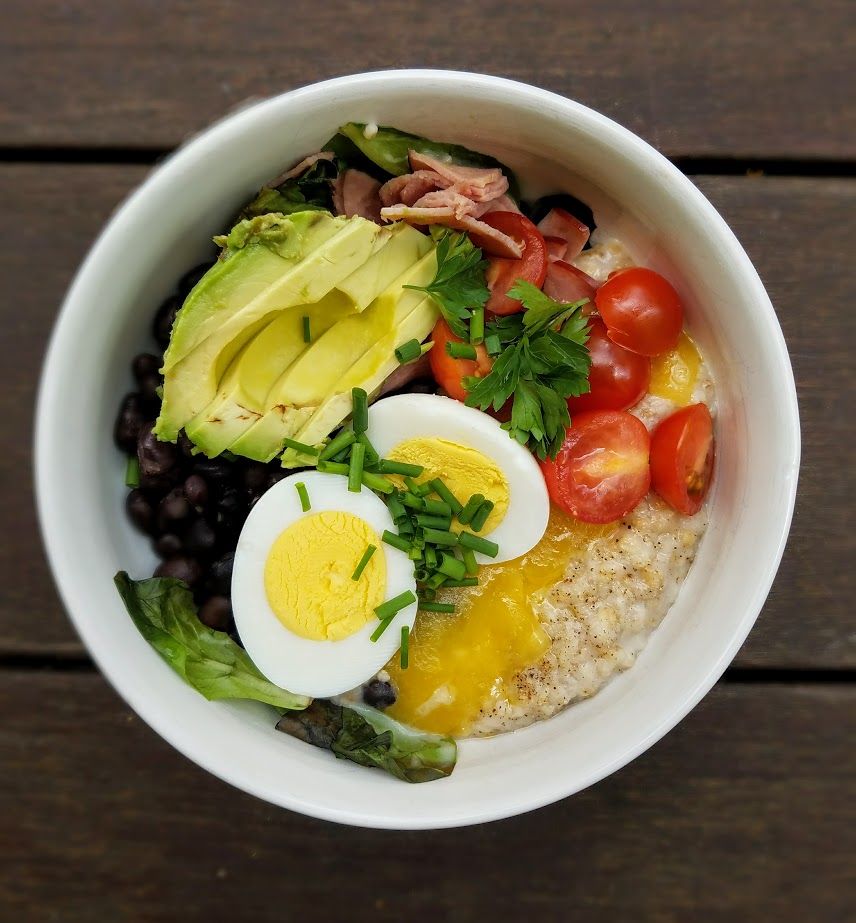
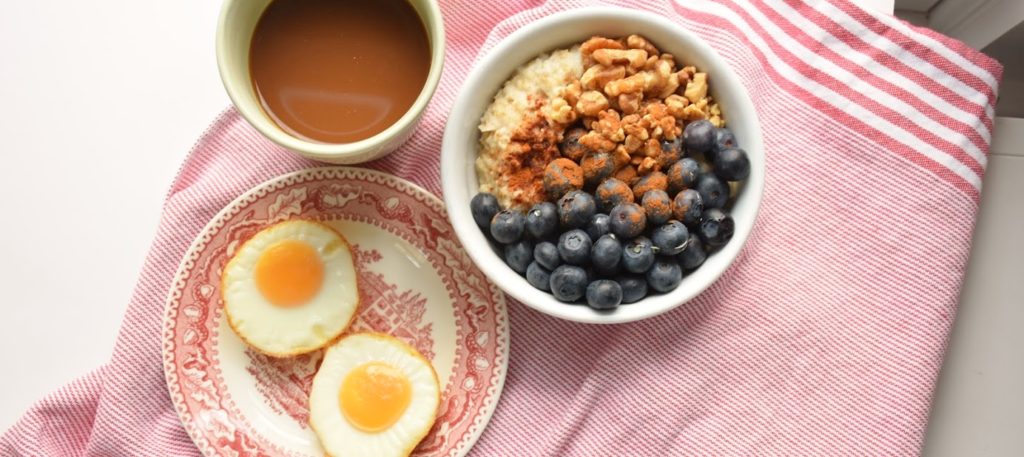


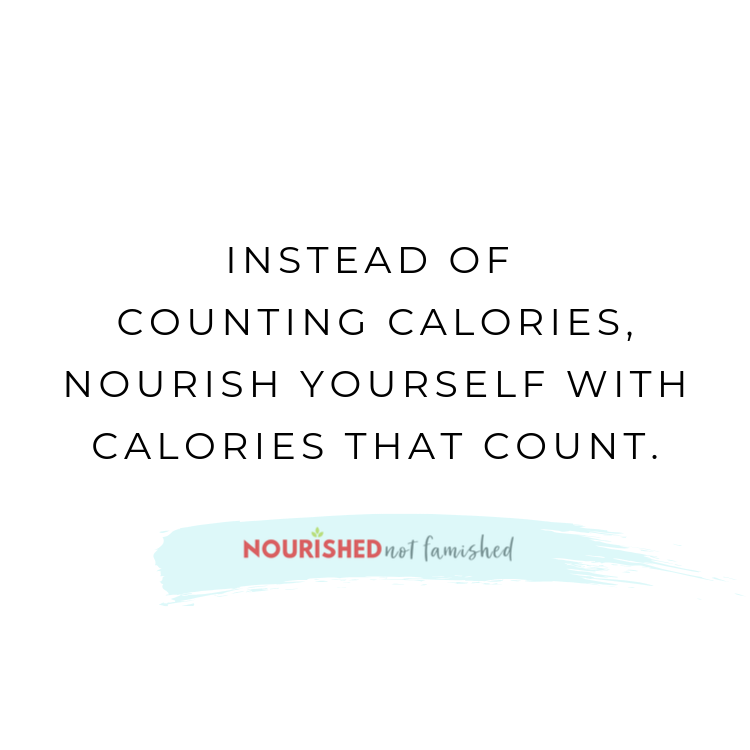
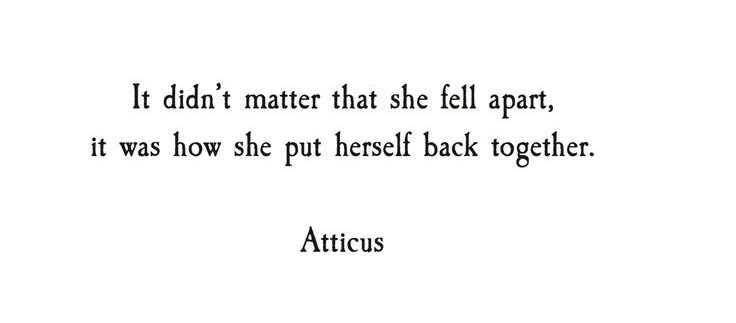
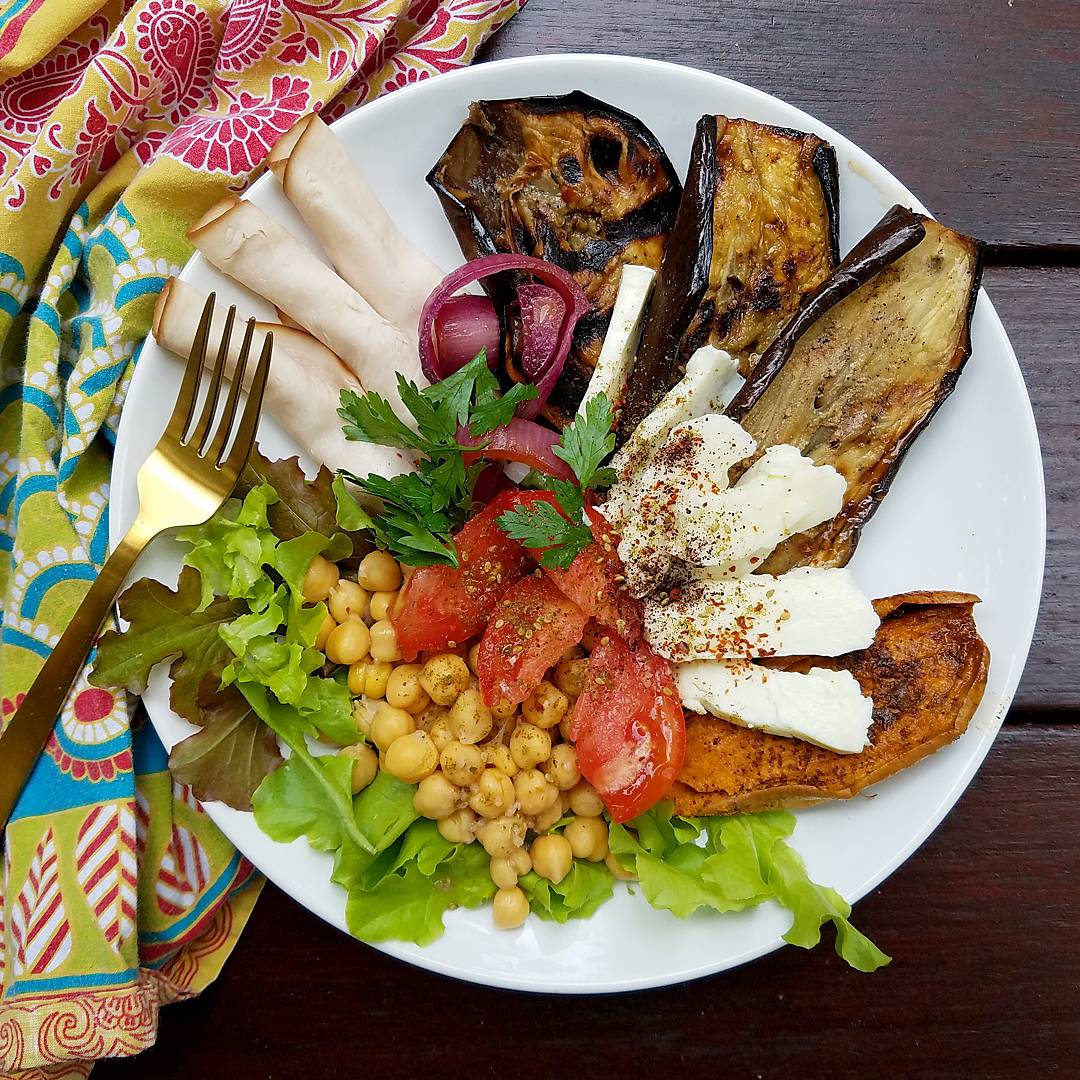


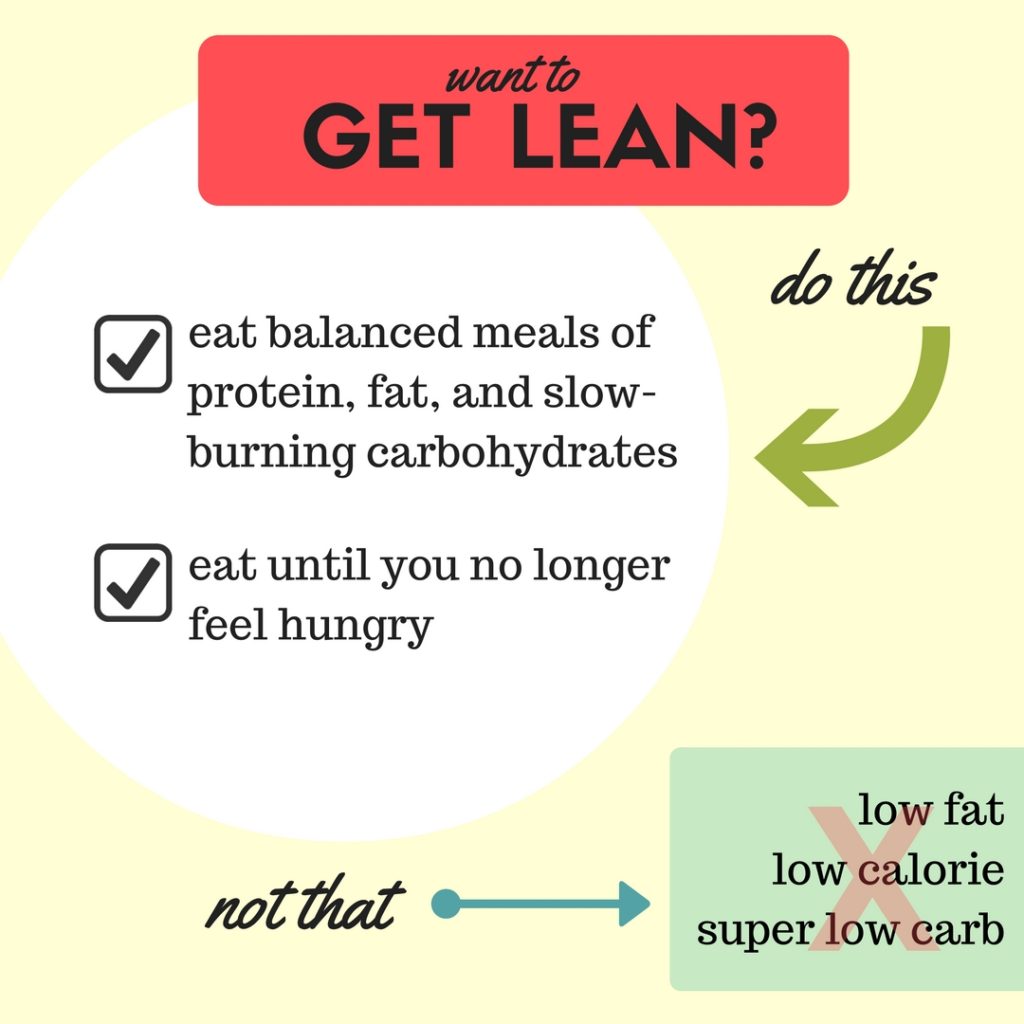
 When this ecosystem of microbes is disturbed (such as through a diet high in refined carbohydrates & processed food; overuse of antibiotics; or chronic stress), there are consequences for our health. It’s critical to keep those gut microbes happy by feeding them! And what do they love to eat? Dietary fiber. If you’re not eating dietary fiber, thenthose gut microbes starve and die, leaving your gut without those healthy microbes. Many plant foods are rich in dietary fiber, and consuming them is a great way to sustain the good microbes in your intestine. In addition, consuming fermented foods such as kraut, kimchi, and kefir help to establish active, healthy microbes in your intestine. Fermented foods have been consumed throughout human history, and are a rich source of healthy microbes that will nourish your gut health.
When this ecosystem of microbes is disturbed (such as through a diet high in refined carbohydrates & processed food; overuse of antibiotics; or chronic stress), there are consequences for our health. It’s critical to keep those gut microbes happy by feeding them! And what do they love to eat? Dietary fiber. If you’re not eating dietary fiber, thenthose gut microbes starve and die, leaving your gut without those healthy microbes. Many plant foods are rich in dietary fiber, and consuming them is a great way to sustain the good microbes in your intestine. In addition, consuming fermented foods such as kraut, kimchi, and kefir help to establish active, healthy microbes in your intestine. Fermented foods have been consumed throughout human history, and are a rich source of healthy microbes that will nourish your gut health.